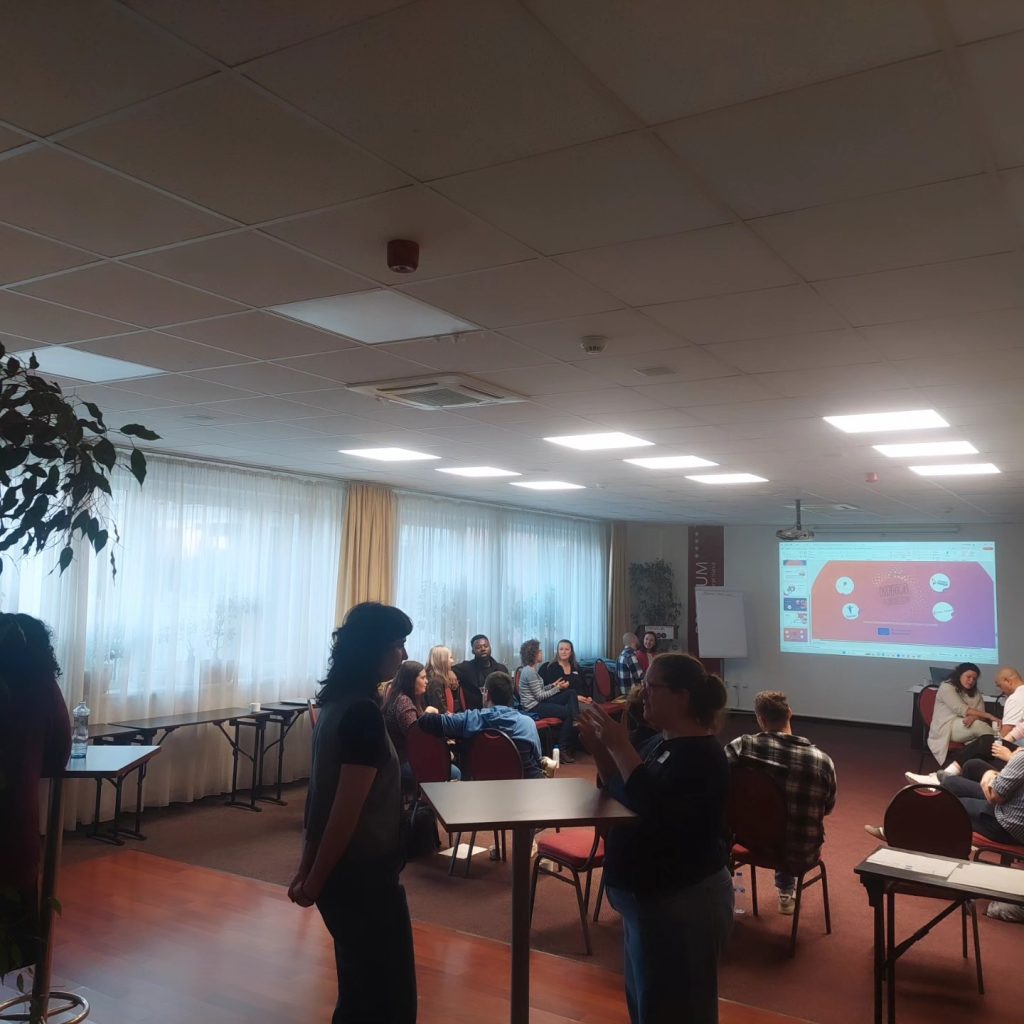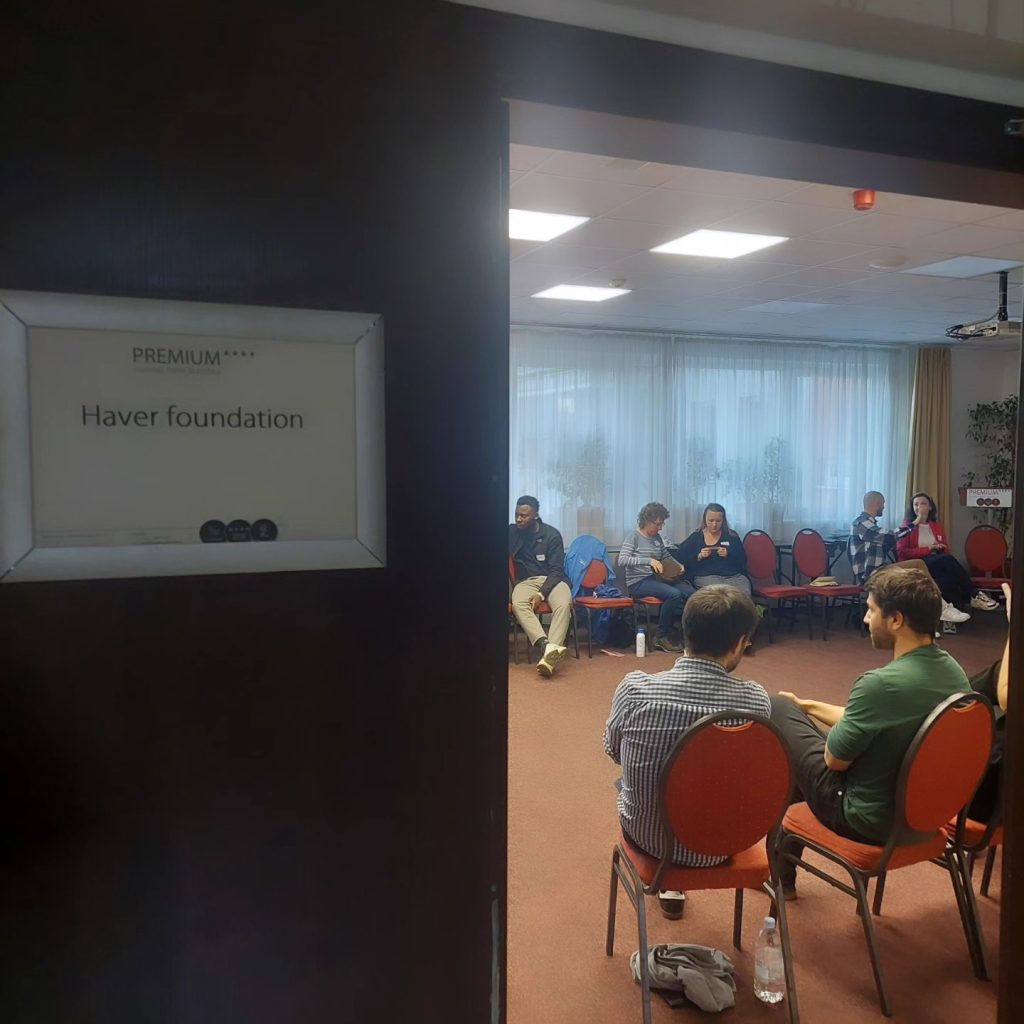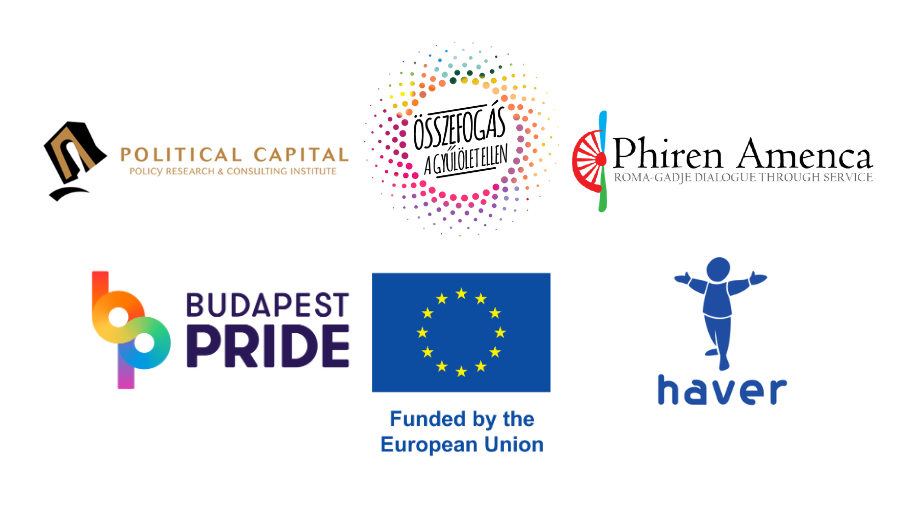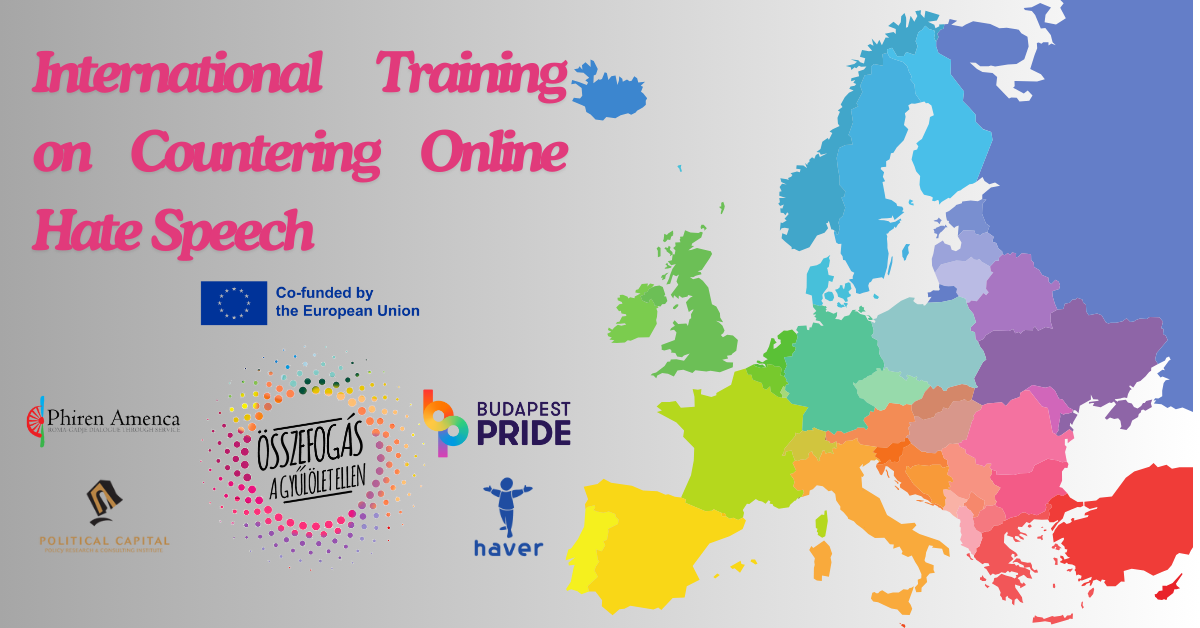March 6-8, 2024 Bratislava, Slovakia
The event brought together representatives from various NGOs working with vulnerable groups, such as the Jewish community, LGBTQI individuals, refugees and migrants, and the Roma population. Apart from Haver and Phiren Amenca representatives, the workshop was facilitated by Lukas Zorad, from Partners for Democratic Change Slovakia (PDCS). Over the course of three days, participants engaged in discussions about strategies for countering online hate speech, sharing experiences from different countries and within various vulnerable communities.
Beyond exchanging organizational practices, the workshop provided a platform for participants to reflect on their personal encounters with hate speech and how they navigate it in their daily lives.

In the beginning of the first day we presented the CHAD project: what had been done so far and what were the main outputs, milestones of the project. Later on, at the first exercise, participants also shared resources related to hate speech, including books, organizations, and projects, enriching collective knowledge on the topic.
The second part was about the personal relation to hate speech. We discussed with the participants the personal reasons when and why they engage when they encounter hate speech and also if they had any experiences with hate speech directed to them, or on the contrary: when they contributed to some acts of hate speech in a certain way. This session was an opportunity to think over the mechanisms we are working with when it comes to hate speech and helped participants to reflect on their own conscious and less-conscious ways of behavior and self-reflection.
The second day began with presentations on hate speech definitions and associated dilemmas, followed by group discussions on underlying causes, key actors, freedom of speech limits, and hate speech effects. During the workshop after the presentation we discussed these dilemmas in small groups. We have been divided into four groups based on the four topics, namely: Underlying causes of hate speech (national ,international and online), Identifying key actors, platform, targets, Limits of freedom of speech and Effects of hate speech (individual, community, society).
The second and third part focused specifically on online hate speech. First, we tested together how online discussions are evolving on a fictive topic with the help of an online platform. After this first-hand experience we turned to the concrete experiences, good practices and dilemmas of the participants when it comes to handling online hate speech. In small group discussions participants had the chance to share with each other what moderation and monitoring strategies they use, what they do in regards to rapid responses and which ways they educate their staff on the topic of hate speech. This exercise helped the participants to gain concrete techniques from each other. In addition, we also provided inputs in the form of a presentation on what existing best practices are used by different organizations. We also had an invited speaker from the initiative called Troll Wall who presented a really practical tool on how to filter out trolls from our websites.

In the evening we visited the Ján Kuciak & Martina Kušnírová Memorial with the group. The memorial that is dedicated to the murdered investigative journalist and his fiancée serves as a reminder on what the possible consequences of hate speech are. During our visit, Lukas Zorad who was actively engaged in the protests following this tragic event, shared his special insights into their story, offering us a deeper understanding of the context.
On the last day we had been separated into groups based on the vulnerable groups we are focusing on, and discussed the most critical issues that these groups have to face at the moment. On this day we visited the Chatam Sofer Memorial which previously served as the Jewish cemetery. A member of the Jewish community guided us throughout the mausoleum and shared with us the story of the cemetery and the history of the Slovakian Jewish community.
During the whole training many connections were made, future cooperation had been planned both on cross-national levels as well as between representatives of different vulnerable groups. Based on the feedback of our participants, the workshop helped them realize that hate speech that different groups face have many similarities and in order to tackle it appropriately we need to cooperate and support each other. Therefore the continuation of this type of workshops and the need for other meetings like this have been formulated.

The „CHAD – Countering Hate Speech and Hurtful Speech against Diversity: Roma, LGBTIQ, Jewish and Migrant Communities” project (project nr. 101049309) is funded by the Citizens, Equality, Rights and Values Programme (CERV) of the DG Justice, European Commission and coordinated by RGDTS Nonprofit Llc. in partnership with Haver Informal Educational Foundation, Rainbow Mission Foundation and Political Capital. Views and opinions expressed are however those of the author(s) only and do not necessarily reflect those of the European Union or the European Commission. Neither the European Union nor the granting authority can be held responsible for them.


